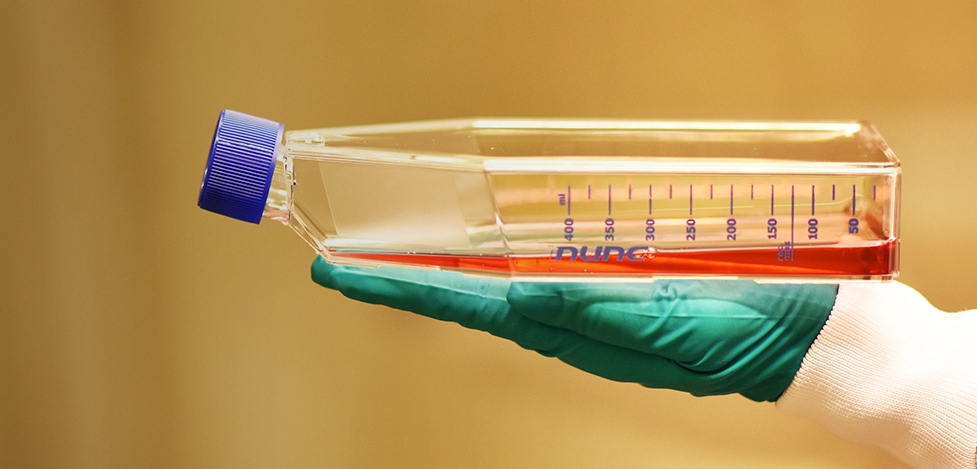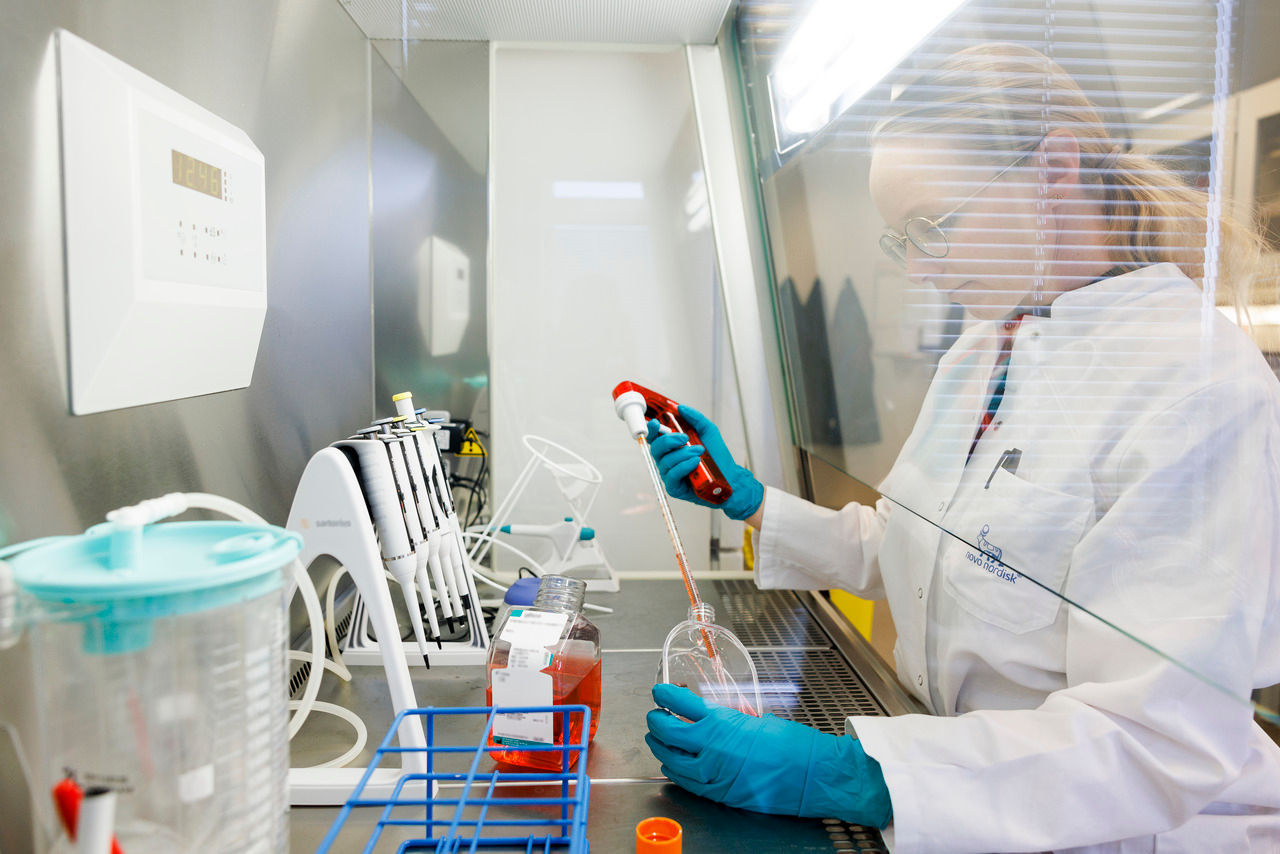
Novo Nordisk believes that stem cell research is essential to understand how cells grow and develop, and how they are affected in different diseases. This knowledge allows us to use human pluripotent stem cells to develop cell therapies for the treatment of people suffering from serious chronic diseases in areas of significant unmet medical need.
We recognise and respect that stem cell research may give rise to ethical questions that need to be thoroughly discussed in society. We are committed to being part of an open discussion about these matters, particularly in relation to the use of human pluripotent stem cells for development of new medicines. This concerns the use of cells derived from adult cells that are reprogrammed back to stem cells, known as induced pluripotent stem cells.
We urge all countries to establish regulation and legislation that will ensure that stem cell research and cell therapy development is appropriately controlled to ensure patient safety and protection of donor rights.
1. Vision to defeat diabetes and other serious chronic diseases
Novo Nordisk is driving change to defeat serious chronic diseases. Cell therapies derived from human pluripotent stem cells have the potential to realise this vision, and we see a particular opportunity to develop curative treatments that could alleviate the burden of disease and the associated chronic treatment
2. Use of human pluripotent stem cells
We are using different types of human pluripotent stem cells as a starting material for the development of cell therapies. The stem cells are then differentiated into specific cell types, such as insulin producing beta cells, which could be used to help treat people with diabetes or dopamine producing neurons, for people living with Parkinson’s Disease.
We also apply stem cell research to increase disease understanding and improve the drug discovery process.
3. Induced pluripotent stem cells
We derive induced pluripotent stem cells from human cells, such as skin or blood cells. These are adult cells that are subsequently reprogrammed back to stem cells. The cells are freely donated under informed consent, for development of cell therapies, and the donation is regulated according to applicable laws and regulations.
4. Patenting of stem cells and cells derived from stem cells
We agree that the research-based protocols used to develop stem cells into therapeutic cells could be patentable.
5. Legal framework
We encourage a clear international legislative framework and regulations around the use of human pluripotent stem cells that also ensures that the knowledge obtained can be used for development of cell therapies to help people suffering from serious chronic diseases.
6. Efficacy and safety standards for cell therapies
We believe that cell therapies made from human pluripotent stem cells should only be made available for the treatment of patients once they have been proven to be safe and efficacious in adequately controlled clinical trials and approved by appropriate regulatory bodies.
Novo Nordisk believes that stem cell research is essential to understand how cells grow and develop, and how they are affected in different diseases. This knowledge allows us to develop cell therapies for the treatment of people suffering from serious chronic diseases in areas of significant unmet medical need.
Many of these conditions are caused by the loss or damage of specific cells, such as beta cells in type 1 diabetes and dopamine producing neurons in Parkinson’s disease, and cell therapies have the potential to halt a disease or even reverse its progress.
Novo Nordisk is committed to driving change to defeat diabetes and other serious chronic diseases with high unmet medical needs. Cell therapies have the potential to realise this vision over time, and we see a particular opportunity to develop potentially curative treatments that could alleviate burden of a disease and associated chronic treatments.
For example, heart failure is a chronic, progressive condition in which the heart muscle is unable to pump enough blood to meet the body’s need for blood and oxygen. This condition leads to frequent hospitalization and two thirds of people diagnosed with heart failure die within five years1. An alternative treatment that could potentially restore heart function would be transformative for people impacted by heart failure.
Novo Nordisk makes decisions with the intent to benefit patients and society, and with respect for applicable ethical codes and company values.
We recognise and respect that stem cell research and development of cell therapies may give rise to ethical questions that need to be thoroughly discussed in society. We are committed to being part of an open discussion about these matters, particularly in relation to the use of human pluripotent stem cells for the development of new medicines. This concerns both the use of cells that are derived from adult cells that are reprogrammed back to stem cells, known as induced pluripotent stem cells.
We encourage a clear international legislative framework and regulations around the use of human pluripotent stem cells that also ensures that the knowledge obtained can be used for development of cell therapies to help people suffering from serious chronic diseases.
Novo Nordisk supports that cell therapies made from human pluripotent stem cells are only made available for the treatment of patients once they have been proven to be safe and efficacious in adequately controlled clinical trials and approved by appropriate regulatory bodies.
We urge all countries to establish regulation and legislation so that stem cell research and cell therapy development is appropriately controlled to ensure patient safety and the protection of donor rights.
1 Pazos-Lopez P et al. Vasc Health Risk Manag 2011;7:237–254 The causes, consequences, and treatment of left or right heart failure (nih.gov)
